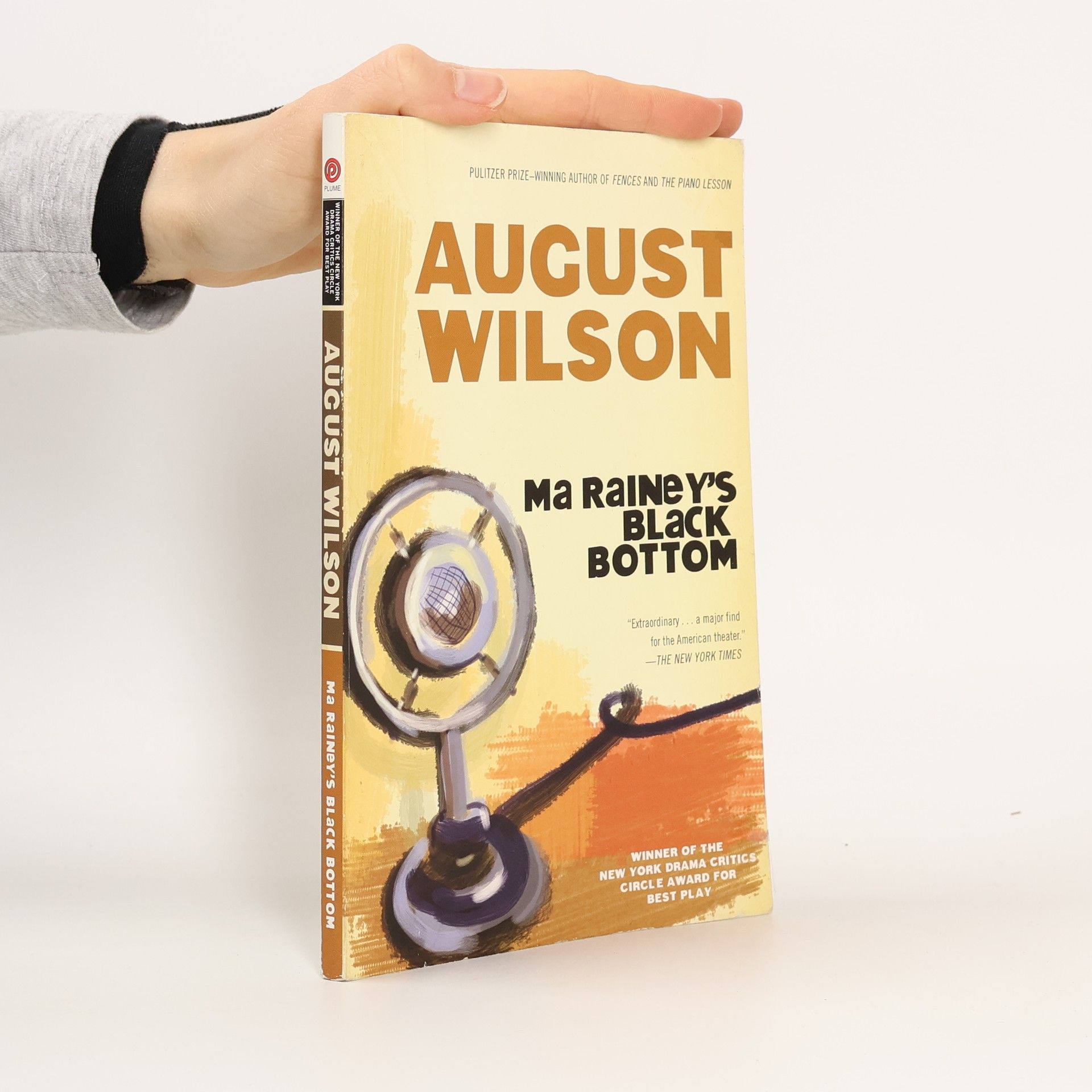The Piano Lesson
Based on the Pulitzer Prize-winning Play by August Wilson
August Wilson was an American playwright whose works capture the comic and tragic aspects of the African-American experience throughout the twentieth century. His expansive ten-play cycle, each set in a different decade, delves into profound human experiences with a distinctive style. Wilson's remarkable command of language and insightful observations on identity, history, and culture make him one of American theater's most significant voices. His writing celebrates the resilience and complexity of the Black community.






Based on the Pulitzer Prize-winning Play by August Wilson
August Wilson's groundbreaking modern classic explores the fragile bond between eight men as they live, love and work in a racially segregated, post- Vietnam America.
In Ma Rainey's Black Bottom, the great blues diva Ma Rainey is due to arrive at a run-down Chicago recording studio with her entourage to cut new sides of old favourites. Waiting for her are the black musicians in her band, and the white owners of the record company. A tense, searing account of racism in jazz-era America that the New Yorker called 'a genuine work of art'. Fences centres on Troy Maxson, a garbage collector, an embittered former baseball player and a proud, dominating father. When college athletic recruiters scout his teenage son, Troy struggles against his young son's ambition, his wife, who he understands less and less, and his own frustrated dreams.
Fast-paced and funny play about the world today and in the future.
"Regular cabs will not travel to the Pittsburgh Hill District of the 1970s, and so the residents turn to each other. Jitney dramatizes the lives of men hustling to make a living as jitneys--unofficial, unlicensed taxi cab drivers. When the boss Becker's son returns from prison, violence threatens to erupt. What makes this play remarkable is not the plot; Jitney is Wilson at his most real--the words these men use and the stories they tell form a true slice of life."--The Wikipedia entry, accessed 5/22/2014.
Set in 1904, August Wilson's Gem of the Ocean begins on the eve of Aunt Esther's 287th birthday. When Citizen Barlow comes to her Pittsburgh's Hill District home seeking asylum, she sets him off on a spiritual journey to find a city in the middle of the Atlantic Ocean. Gem of the Ocean is the ninth work in Wilson's ten-play cycle that has recorded the American Black experience and helped to define generations. The Broadway run starred Tony Award winner Phylicia Rashad as Aunt Esther.
Peddling stolen refrigerators in the feeble hope of making enough money to open a video store, King Hedley, a man whose self worth is built on self delusion, is scraping in the dirt of an urban backyard trying to plant seeds where nothing will grow. Getting, spending, killing and dying in a world where getting is hard and killing is commonplace are threads woven into this 1980's installment in the author's renowned cycle of plays about the black experience in America. Drawing on characters established in Seven Guitars, King Hedley II shows the shadows of the past reaching into the present as King seeks retribution for a lie perpetrated by his mother regarding the identity of his father.
The Pulitzer Prize-winning author is renowned for exploring themes of race, identity, and the African American experience in his works. His plays, particularly "Fences" and "The Piano Lesson," delve into the complexities of family dynamics and the struggles against societal barriers. Through rich character development and poignant dialogue, he captures the emotional depth and resilience of his characters, making significant contributions to American theater and literature.
From the Pulitzer Prize-winning author of Fences and The Piano Lesson comes a “vivid and uplifting” (Time) play about unsung men and women who are anything but ordinary. August Wilson established himself as one of our most distinguished playwrights with his insightful, probing, and evocative portraits of Black America and the African American experience in the twentieth century. With the mesmerizing Two Trains Running, he crafted what Time magazine called “his most mature work to date.” It is Pittsburgh, 1969, and the regulars of Memphis Lee’s restaurant are struggling to cope with the turbulence of a world that is changing rapidly around them and fighting back when they can. The diner is scheduled to be torn down, a casualty of the city’s renovation project that is sweeping away the buildings of a community, but not its spirit. For just as sure as an inexorable future looms right around the corner, these people of “loud voices and big hearts” continue to search, to father, to persevere, to hope. With compassion, humor, and a superb sense of place and time, Wilson paints a vivid portrait of everyday lives in the shadow of great events.
NOW A NETFLIX FILM STARRING SAMUEL L. JACKSON! Winner of the New York Drama Critics Circle Award for Best Play, this modern American classic is about family, and the legacy of slavery in America. August Wilson has already given the American theater such spell-binding plays about the black experience in 20th-century America as Ma Rainey's Black Bottom, Joe Turner's Come and Gone, and the Pulitzer Prize-winning Fences. In his second Pulitzer Prize-winner, The Piano Lesson, Wilson has fashioned perhaps his most haunting and dramatic work. At the heart of the play stands the ornately carved upright piano which, as the Charles family's prized, hard-won possession, has been gathering dust in the parlor of Berniece Charles's Pittsburgh home. When Boy Willie, Berniece's exuberant brother, bursts into her life with his dream of buying the same Mississippi land that his family had worked as slaves, he plans to sell their antique piano for the hard cash he needs to stake his future. But Berniece refuses to sell, clinging to the piano as a reminder of the history that is their family legacy. This dilemma is the real "piano lesson," reminding us that blacks are often deprived both of the symbols of their past and of opportunity in the present.